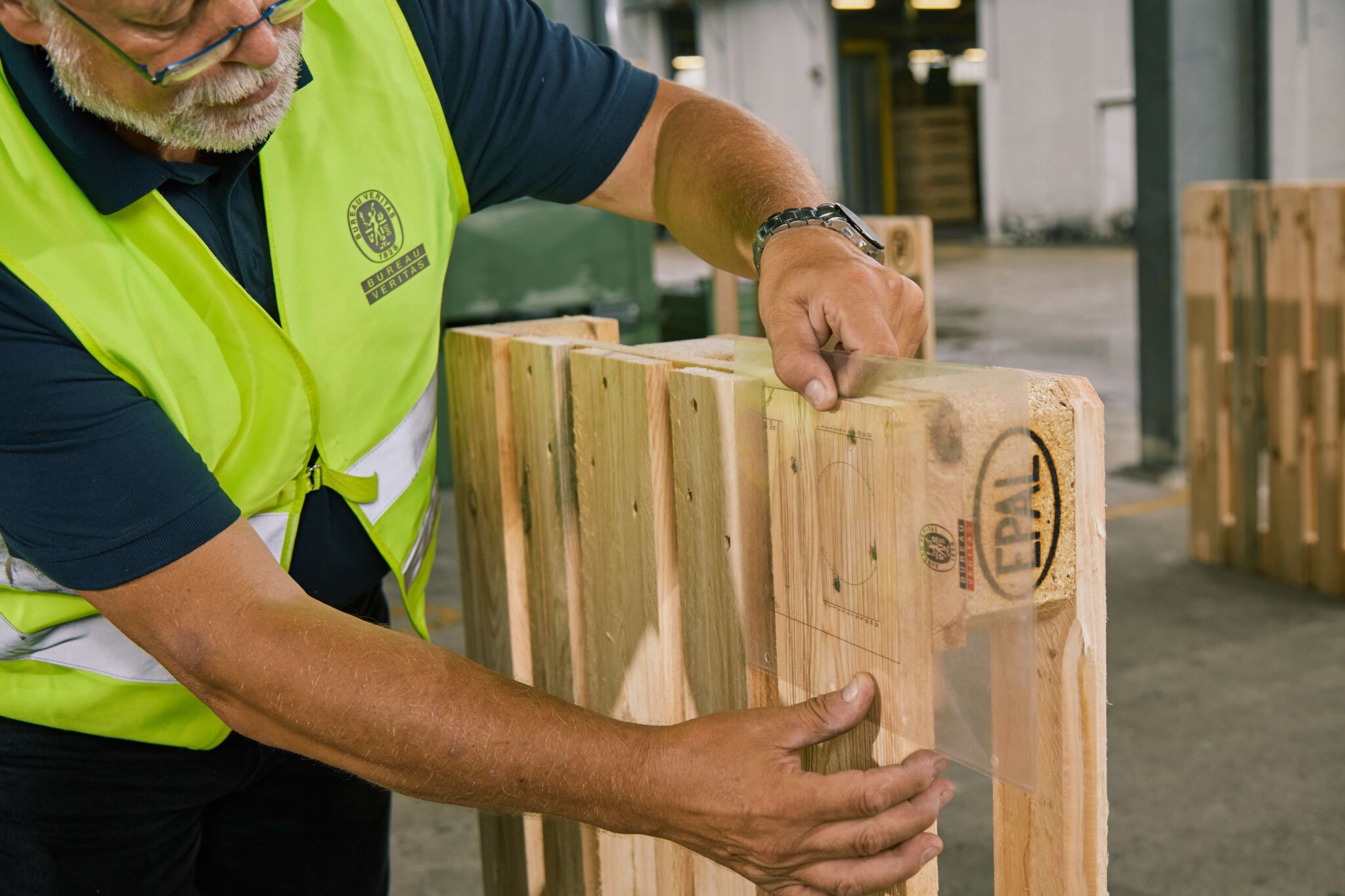Manufacturing and reuse of wooden pallets increased significantly according to the most recent survey commissioned by the Timber Packaging & Pallet Confederation (TIMCON) and the research arm of the Forestry Commission, Forest Research.
The UK Wood Pallets & Packaging Market survey showed that UK manufacturers produced an estimated 48.6 million in 2021, up 8.3 per cent from 44.9m the previous year. These manufacturers repaired and sold on for reuse a further 16.2m pallets, up from 15.6m in 2020. Overall, pallet repair was down slightly, at 48.1m, compared with 49m the year before. The annual survey is based on a questionnaire answered by TIMCON members, who manufacture approximately 80 per cent of the 50 million new pallets produced in the UK every year.
Commenting on the figures, TIMCON President John Dye said: “It is encouraging to see that this report shows a substantial uplift in the number of new pallets manufactured. While there was a small drop in the reported number of pallets inspected and repaired, this number is still similar to the number of new pallets – and I would expect to see it start to rise again in the months ahead, and also be boosted by the formal implementation of the UK Government’s eagerly awaited reuse incentive in 2025.”
Dye added that the manufacturing increase has led to corresponding growth in sawmilling output into the pallet and packaging sector of around 13 per cent, to 1.61m3. He also noted that employment in the pallet and packaging industry had risen to 4,221, a year-on-year increase of 23 per cent.
The report was presented to TIMCON’s general meeting held in Manchester during March, which also heard updates on TIMCON’s work with the UK Government, including the recent consultation on the reform of existing Packaging Waste Regulations and the new Extended Producer Responsibility (EPR) for Packaging Waste, due to come into force in 2025. As a result of this work, said Dye, Defra announced earlier this year that it was still considering the recycling target for wooden packaging and, rather than setting recycling targets for wooden pallets, it is now considering options for reuse obligations before recycling.
Thomas Hare of environmental consultant Valpak gave a further update on the expected timeline for implementing the EPR for packaging, which he said would significantly increase admin and was expected to generate a £1.7 billion in total annual costs for obligated businesses.
FEFPEB President Rob van Hoesel and General Secretary Fons Ceelaert attended the meeting. Ceelaert gave an overview of the latest developments in European environment-focused legislation as part of the European Green Deal, including the EU Circular Economy Action plan to reduce net greenhouse gas emissions by at least 55 per cent by 2030. He said the wooden pallet and packaging industry was engaging with the review of packaging and packaging waste regulations (PPWR) and that FEFPEB now has an PPWR taskforce to manage the process and highlight the “unique contribution of the sector to a sustainable world.”
Charlie Law, Sustainability Director at Timber Development UK, presented the timber industry’s Net Zero Roadmap to the meeting. Timber Development UK signed up to the SME Climate Hub Commitment in January 2022, pledging to support its members in halving greenhouse gas emissions before 2030 and achieving net-zero emissions by 2050. Law highlighted that timber related industries in the UK are responsible for around 1.58 million tonnes of territorial CO2 emissions annually, around 0.35 per cent of the country’s total. This, he added was ‘very low compared to other industries’, such as steel (12m t, 2.7 per cent of the total) or concrete (7.3m t, 1.5 per cent of the total). He said that it was essential to measure product flows in every timber industry in order to start reducing carbon emissions, something he added the pallet and packaging sector ‘has a really good handle on’.
The TIMCON meeting heard updates on the organisation’s other work, including its collaboration with the NWPCA in the US, and the Global Wood Packaging Forum and engaging with the UK government on issues such as sourcing workers from overseas and the post-Brexit Windsor Framework.
Dye was among the members of the pallet and packaging sector who said goodbye and thank you to TIMCON Past President Gil Covey, who is retiring from the industry at the end of April, after 33 years. Covey also served as FEFPEB President for more than 10 years before becoming Treasurer of the organisation, and is currently Non-Executive Director of James Jones & Sons (Pallets and Packaging) Ltd.







